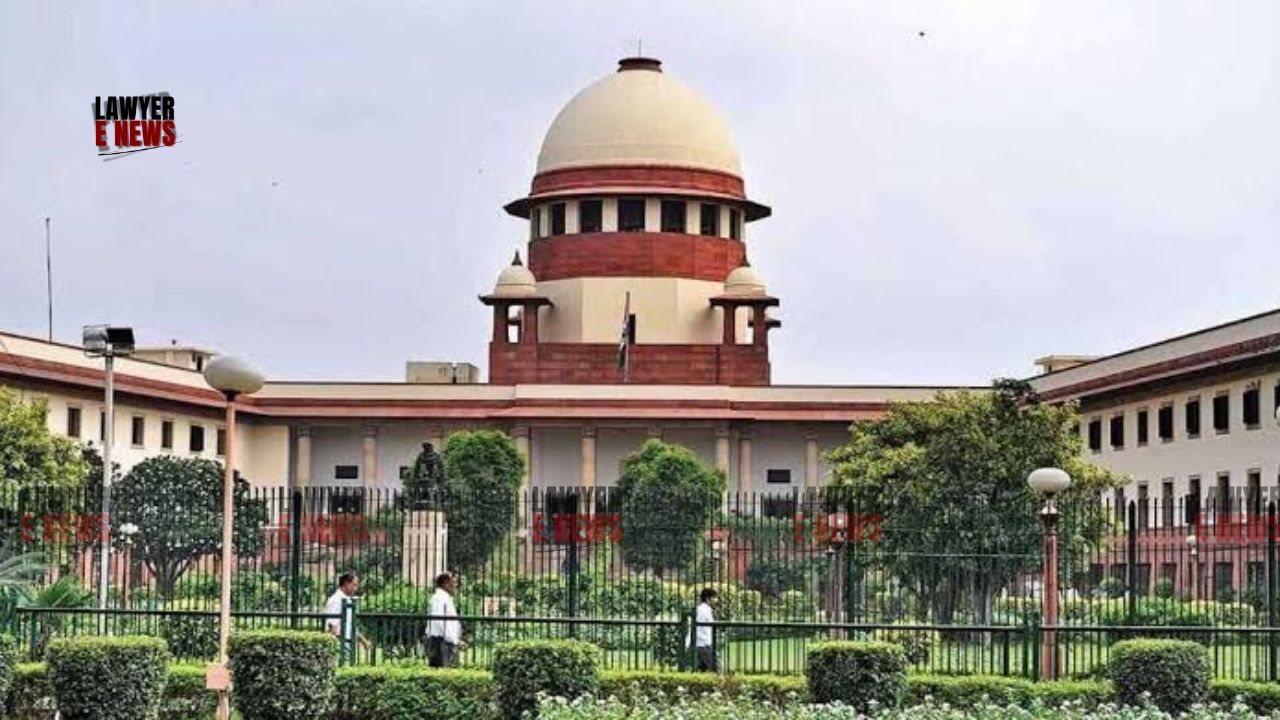-
by Admin
15 February 2026 5:35 AM



Supreme Court of India, in the case of K. Vadivel v. K. Shanthi & Ors., delivered a significant ruling concerning the scope of further investigation under Section 173(8) of the Criminal Procedure Code (Cr.P.C.). The apex court reversed an earlier judgment by the Madurai Bench of the Madras High Court that had ordered further investigation into a murder case nearly six years after the charge sheet was filed. The court held that allowing such investigations without substantial cause would amount to a "fishing and roving inquiry" and reaffirmed that such powers must be exercised sparingly and only in exceptional cases.
The case stemmed from a gruesome murder that occurred on March 31, 2013, when a man named Kumar was hacked to death by assailants during an early morning walk. The First Information Report (FIR) was filed by one Padikasu (PW-1), who initially claimed to have witnessed the murder. Following an investigation, the police filed a charge sheet on July 11, 2013, accusing eight individuals, including the appellant, K. Vadivel, of being responsible for the crime.
During the trial, however, PW-1 (the key witness) turned hostile, and the wife of the deceased, K. Shanthi (Respondent No. 1), sought to introduce new evidence and witnesses through multiple applications. Her first attempt, filed under Section 311 Cr.P.C. to summon additional witnesses, was dismissed by both the trial court and the High Court. Undeterred, she filed a fresh petition under Section 173(8) Cr.P.C. for further investigation, which was allowed by the High Court, prompting the appellant to challenge this decision before the Supreme Court.
The principal legal question addressed by the Supreme Court was whether the High Court had erred in ordering further investigation under Section 173(8) of the Cr.P.C. after the trial had progressed substantially, without any new material evidence being presented by the applicant.
The appellant, K. Vadivel, contended that the application for further investigation was an attempt to reopen the case, disguised as a fresh petition under Section 173(8). The appellant argued that once charges had been framed and trial proceedings were at an advanced stage, further investigation should not be allowed without compelling evidence, especially when the trial court had already dismissed similar applications under Section 311 Cr.P.C.
The respondent, on the other hand, argued that justice required further investigation to ensure that all relevant witnesses and evidence were presented in court, especially since the key witness (PW-1) had turned hostile.
In its detailed judgment, the Supreme Court reaffirmed the established legal principle that further investigation under Section 173(8) should only be ordered in exceptional circumstances where fresh evidence or material surfaces that was previously unavailable and could alter the outcome of the trial. The court noted that while the power to order further investigation exists, it must be exercised sparingly and only when there is substantial reason to believe that justice cannot be served without additional inquiry.
The bench, led by Justices B.R. Gavai and K.V. Viswanathan, strongly criticized the High Court’s order for failing to provide adequate legal reasoning for further investigation. The court observed that the respondent had ample opportunity to present witnesses and evidence during the trial but failed to do so. Moreover, her earlier application under Section 311 Cr.P.C. had been dismissed due to similar deficiencies.
Supreme Court emphasized:
"Further investigation cannot be permitted to conduct a fishing and roving inquiry when the police had already filed a charge sheet, and the very applicant for further investigation in this case has not whispered about anything new in her evidence as is now sought to be averred in the application.”
The court also pointed out that the trial court had correctly dismissed the respondent’s application for further investigation, observing that the request was filed long after the prosecution’s evidence had been concluded and after the accused had already presented their defense.
The court relied heavily on precedents, including the judgments in Ram Lal Narang v. State (Delhi Administration) (1979) 2 SCC 322 and Hasanbhai Valibhai Qureshi v. State of Gujarat (2004) 5 SCC 347, to clarify the scope of further investigations. These cases had established that while courts have the power to order further investigation, it should only be done when significant new facts emerge, not simply to fill gaps in the prosecution’s case.
The court observed that, in this case, there was no compelling reason for further investigation. The witnesses whom the respondent sought to introduce had been known to her for years, and there was no new information that had come to light after the charge sheet was filed in 2013. The timing of the application, coming years after the filing of the charge sheet and just before final arguments were to be presented, raised suspicions that it was merely a delay tactic.
Ultimately, the Supreme Court allowed the appeal, setting aside the High Court’s order for further investigation and directing the trial court not to consider the additional charge sheet that had been filed as a result of the High Court's order. The court further directed the trial court to conclude the proceedings and deliver its judgment within eight weeks.
The ruling serves as a reminder that further investigations are not meant to be used as a tool for prolonging trials or conducting baseless inquiries. Courts must exercise this power with caution and only in cases where fresh evidence genuinely emerges, justifying such an investigation.
Date of Decision: September 30, 2024
K. Vadivel v. K. Shanthi & Ors.
